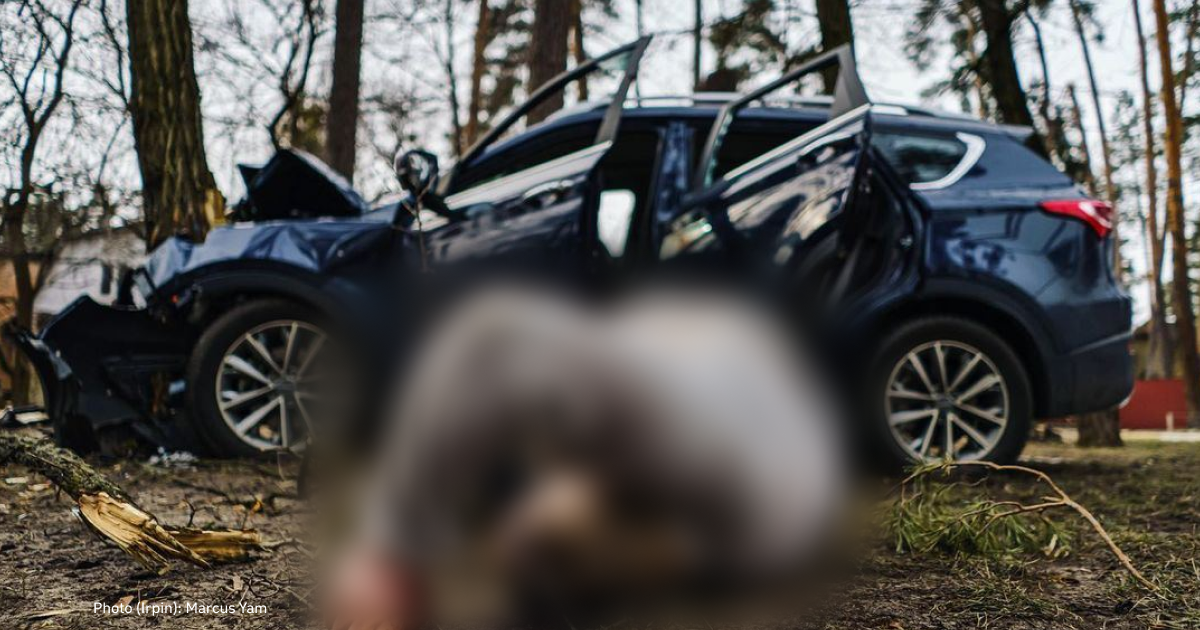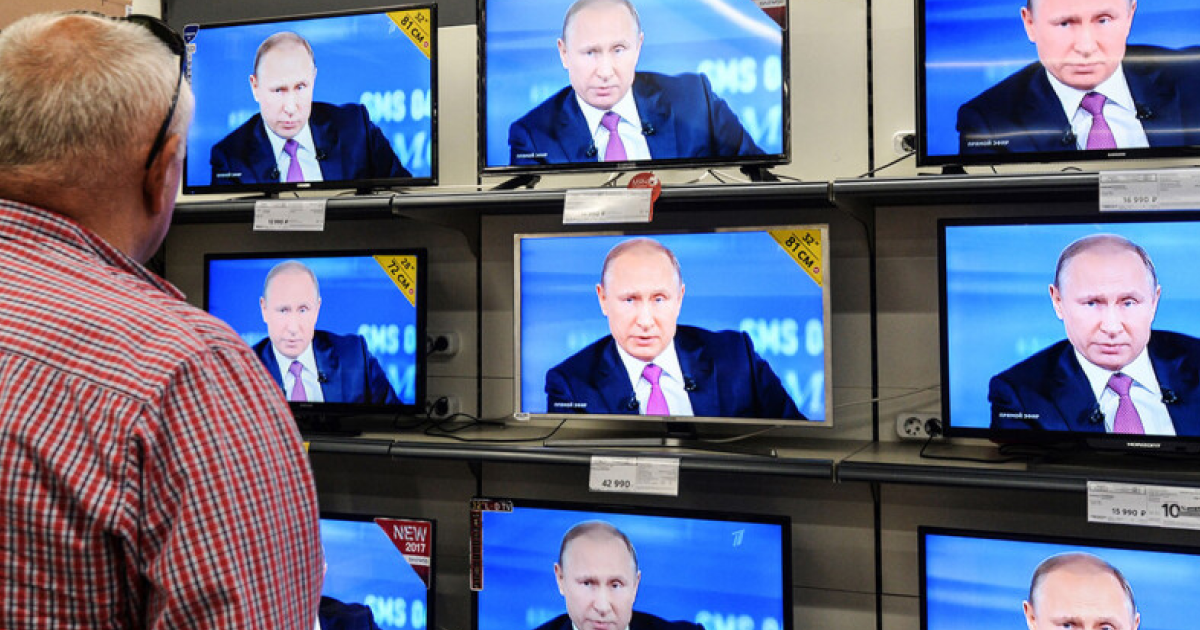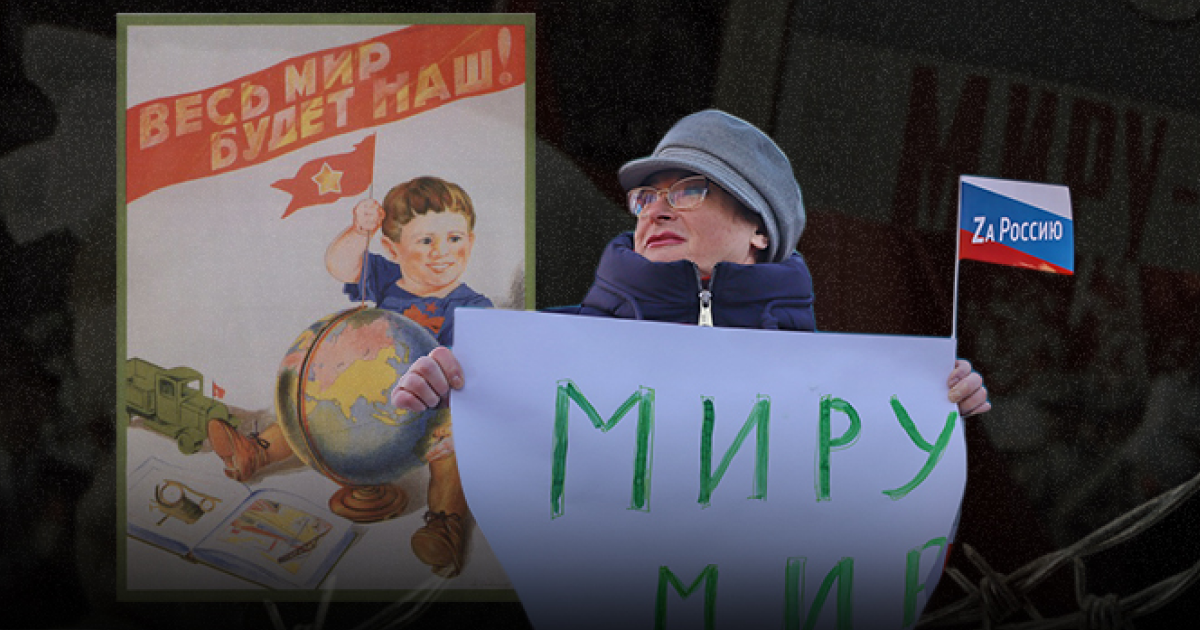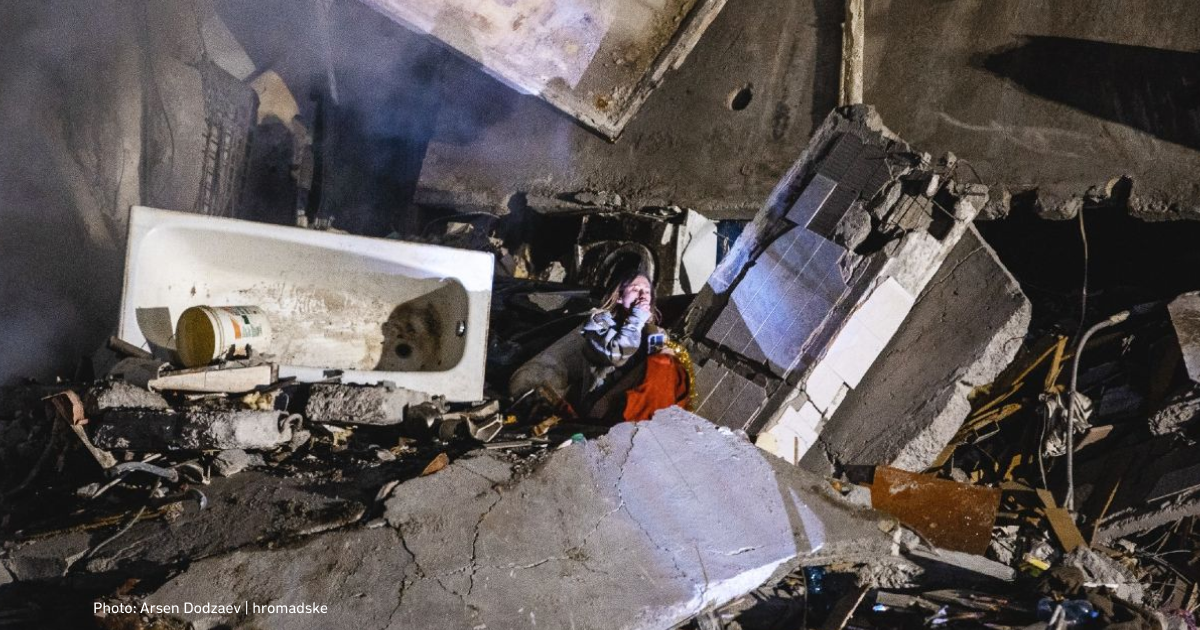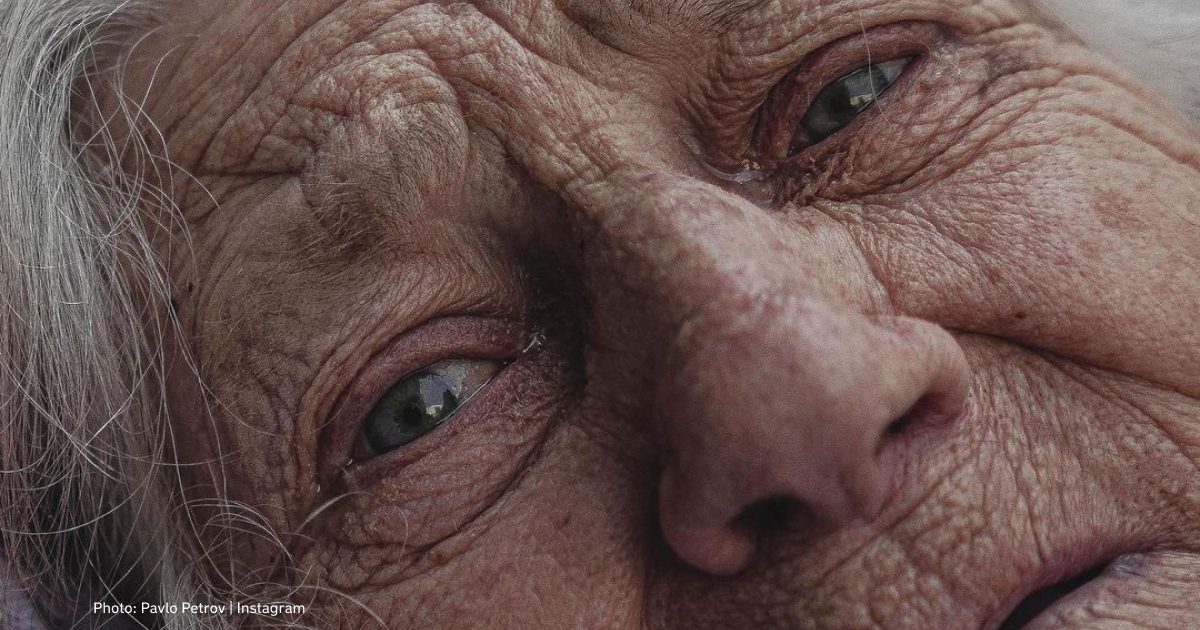A recognition of genocide will change the conversation entirely – Christopher Atwood

At the end of May 2022, when the footage from Bucha came out, the team of New Lines Institute and the Raoul Wallenberg Center for Human Rights published the genocide report Russia is committing in Ukraine. The report is titled "An Independent Legal Analysis of the Russian Federation’s Breaches of the Genocide Convention in Ukraine and the Duty to Prevent". One of the report's goals was to help understand an alternative framework for perceiving the full-scale invasion.
This past summer, in July, the team published a second report that was conceived as just an update to what had happened a year after their first report. Since the first one, there have been so many international human rights reports about Russia's abuses in Ukraine that finding evidence of genocide was a difficult emotional task, but not from a practical perspective of actually finding evidence of Russia targeting Ukraine or Ukrainians.
Christopher Atwood — an American media expert and researcher of Russia’s genocide in Ukraine, had been working on a genocide report as a regional specialist. Since Christopher used to live in Ukraine and Russia, he’d been helping to understand the context of the region and analysing the Ukrainian and Russian language sources.
Svidomi talked to Christopher about the long story of Russian genocide and colonialism, the significance of the Genocide Convention, and how international recognition of Russian atrocities would shift the perception of ongoing war.
The piece includes traumatic and sensitive imagery.
Since the very beginning of the full-scale invasion, the Ukrainians have started to define all crimes committed by Russia as genocide. In April 2022, the Verkhovna Rada of Ukraine recognised Russia's actions on the territory of the country as genocide. But what does genocide mean according to the Genocide Convention, released by the UN?
The legal definition of genocide is famous — Article Two of the Genocide Convention lists five separate acts you can commit to destroy a protected group in whole or in part. So, there are four protected groups: national, ethnic, racial, and religious.

Then there are five acts: killing members of the group, causing serious bodily or mental harm to members of the group, deliberately inflicting conditions of life calculated to bring its destruction, imposing measures intended to prevent births within the group, and then forcibly transferring children from one group to another group.
We structured our report according to the lists in Article Two and checked whether the atrocities committed by Russia took place. We didn't collect evidence ourselves; we limited ourselves to open-source reports, like humanitarian reports from the UN and Human Rights Watch.
Russia's crimes in Ukraine are so obvious and open that you can just go point by point with the genocide convention and explore each one.
So, according to the second edition of your report, Russia is committing genocide. Did you make this conclusion?
Yes. And that report is also, I should stress, less of a legal analysis. The second report becomes more of a historical and analytical report, where we are more careful to contextualise Russia's actions in Ukraine.
Thus, the second report helps to explain the historical and cultural context of the first report while expanding on the actual actions of Russia in the past year or two years.
Ironically, Russia signed the Genocide Convention (an international treaty that criminalises genocide and obligates state parties to pursue the enforcement of its prohibition – ed) in 1948 but still continued killing thousands of Ukrainians and the other colonised states, deporting and persecuting them. Does it mean that the document didn’t matter anything even then?
That question strikes at the heart of the entire concept of human rights and the attempts to prevent war crimes from happening. When you look at Russia's crimes in Ukraine, it is almost as if they are reading treaties and using them as a guide on the crimes to commit.
At the same time, there is criticism of the US, where the US has sat in on all of these treaty negotiations that have helped build the understanding of human rights in the post-World War Two era.
I think the biggest problem we have is not that the document does not work or is not helpful. But instead, to what degree we are actually willing, as an international community, to hold ourselves to these standards and to hold different players to these standards.
When a country is small and commits a lot of war crimes, then we don't have any problem punishing them to the fullest extent. There’s no real serious chance of backlash from holding a small country to account.
However, look at the discussion in the US naming Russia a state sponsor of terrorism or not naming Russia a state sponsor of terrorism; the professionals inside the United States government will tell you, ultimately, the problem here is that there is a fear in the presidential administration of suspending sovereign immunity from Russia. Because we have never done that to a country with such a large economy that has such influence in the world.
When the economic and geopolitical interests are more significant than the human rights interests, we have a serious problem. To my mind, the goal needs to be — to create incentive structures so that human rights interests are, at the very least, equal to economic and geopolitical interests.

Do you think Russia hasn't been punished yet because it is a huge player in the world arena?
I don't think that is the conclusive reason, but it is the hurdle you have to overcome to convince the most hesitant to designate Russia as a state sponsor of terrorism. We have a weird, perverse respect for other historical imperial powers.
I think, also, a lot of this is how we perceive Russia. I remember when the Kakhovka Dam was destroyed by Russia, which is one of the largest terror attacks that's happened in Europe, possibly the largest in this generation; Western journalists and experts could not fathom that Russia could do that.
They could not comprehend the world in which Russia is capable of that kind of crime. And that happened a year and a half into the full-scale invasion, even after the wars in Chechnya, Georgia, and Syria.
We should be ignoring Russia's perspective on all of these issues because Russia has never demonstrated that it is a reliable narrator of the histories of the people that surround it.
After the events in Mariupol, Bucha, Irpin, and Izium, there is no doubt that Russia wants to destroy the Ukrainian nation, there was evidence of murder and tortured civilians. Still, we have only a few countries that have recognised this. Why is this happening, and what will it mean for each country if it does recognise the genocide?
There are different ways to acknowledge genocide: there is when you have the actual state apparatus itself recognising the genocide. Sо, the Biden administration will almost certainly not in the near future recognise full-scale invasions as genocide because of the legal obligation to prevent genocide.
This means — once you recognise that genocide is taking place, you have a duty to prevent that genocide. Every country is aware of that legal obligation. Countries and governments are hesitant to recognise an ongoing genocide because they're afraid of being drawn into the war permanently, for there is no alternative.
The important thing is that in the genocide convention, it is mentioned in the title — prevention before punishment. Prevention basically means you have to do everything in your power to stop whatever genocide is taking place.
I would like to elaborate on how the prevention mechanism should work because we have evidence of genocide in 2014. According to the Convention — states who ratify it should prevent genocide once they become aware of the risk of it. How do you think the genocide in 2022 would have been avoided if the states had reacted and prevented it before February 24?
Last December, Timothy Snyder gave testimony to a hearing on genocide organised by the Helsinki Commission. One of his points was that Ukrainians are in a unique position with the genocide being committed against them.

Historically speaking, genocides are largely attempted against people who don't have a way to defend themselves. Look at the Uyghur genocide in China: you have a vulnerable group who don't have full autonomy and don't have a way to defend themselves, to really resist genocide in a way that will prevent the genocide from happening.
On the other hand, in Ukraine, you have the Ukrainian state, which is a reliable democratic state, and the Ukrainian army, which is professional and competent. So, from that perspective, the prevention mechanism here seems quite self-evident. You (states who ratified the Convention — ed.) just provide Ukraine with all the tools that it needs to defeat the invasion of its country, and you simultaneously use mechanisms to basically freeze Russia out of the international community until it stops committing genocide.
Between those two actions, eventually, one or two things are going to happen: either the pressure will be too much, and Russia will stop, or the pressure will be so much, and Russia won't have the international mechanisms to continue the war, so eventually the Ukrainian army will overcome the Russian.
I think, in this case, the answer is — yes, it's all pressure you can possibly put on Russia. From my perspective, it would be designating Russia as a state sponsor of terrorism. It would ensure that US businesses are not doing business with Russia. It would be ensuring that our partners aren't doing business with Russia. Anybody in the world who is caught supporting the Russian army would be under US sanctions. There are mechanisms that we could use to stifle Russia's attempted genocide in Ukraine.
These are mechanisms we could have implemented prior to February 24, 2022. These are mechanisms we could have if we had understood the history in 2014, and we could have understood what the end goal might actually be.
In 2021, when Putin wrote his essay on the historical unity of Ukrainians and Russians, it was literally, from my perspective, a genocidal manifesto (The essay consists of a brief outline of the history of the two nations and an analysis of current relations between Ukraine and Russia. In the article, Putin is presented as a supporter of the concept of a triune Russian people, which for centuries formed a single cultural and spiritual space of historical Russia. According to Putin, modern Ukraine is entirely a product of the Soviet era, largely created at the expense of what he calls "historical Russia." — ed.)It's just basically describing the twisted worldview he lives in and assumes that anybody who disagrees with that worldview is a Nazi attempting to undermine Russian existence.
I think there are a lot of mechanisms we could have pressed to prevent 2022. But even after 2022 started, at any point, we can ramp up these mechanisms and take the appropriate action to stop genocide.
Why the recognition of genocide is essential for Ukraine?
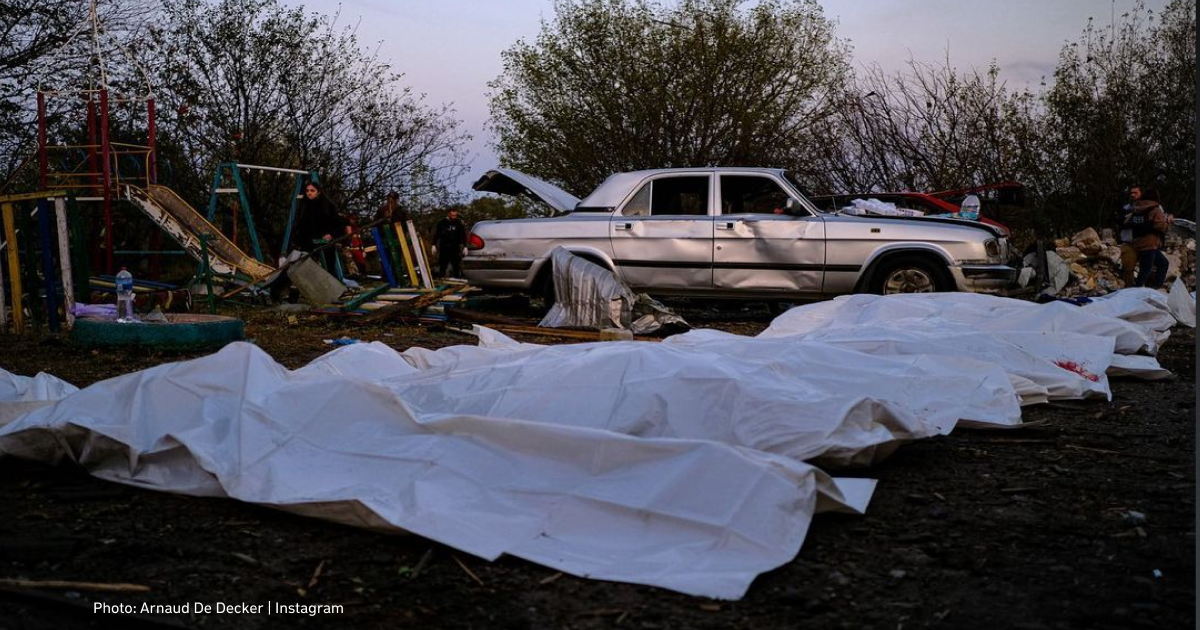
I'm certain that a recognition of genocide, especially from the US, not only from major Western European countries, changes the conversation entirely. However, if you pick the truth that Russia's committing genocide in Ukraine, and you make that the key aspect of the narrative that you build regarding what the war in Ukraine actually is, then that becomes hard to overcome for people who don't want to support Ukraine.
The presidential election in the US is coming up next year, the Republicans are all having debates, and we have every debate topic of Ukraine coming up. In every debate, Vivek Ramaswamy (The Republican candidate for president — ed.) is saying blatant Russian disinformation talking points.
There is Ron DeSantis (member of the Republican Party — ed.), who is waffling between the extreme anti-Ukrainian he wants to be. And for people like that, if Congress were to recognise the full-scale invasion as genocide, that would be such a monumental thing that happened, people would then discuss the war in terms of genocide.
For me, personally, the recognition of genocide by the US Congress and by different legislatures around Europe would help facilitate a global understanding of what the full-scale invasion is versus the current understanding, which is: "Oh, my God, it's a naked war of aggression, which is horrible".
But a naked war of aggression is not the same thing as a genocide. People are repulsed by genocide. When you point to the fact that Russia's committing genocide, deporting Ukrainian children, sending them to indoctrination camps, and trying to destroy Ukrainian identity through the identities of the children that are abducted, then people are absolutely horrified. Moreover, they completely change how they talk about Ukraine when you can help them understand these realities.
Looking at the war crimes that Russia is committing against the Ukrainian people, can we say that not only Putin but the Russians should bear responsibility for the genocide?
If you look at our first report, we advocated for state responsibility. And all the authors of that report have publicly made the case that state responsibility is key here.
Firstly, it can't be just Putin's responsibility. There has to be an entire system under Putin to orchestrate a genocide that takes place under the circumstances. You can't just magically wave your hands and make it happen.
But more profoundly, when you look at it, Russian colonialism is built on the narratives about Ukrainians or peoples outside of Russia. I always go back to what I saw at the beginning of the full-scale invasion: a sociological project where some polling in Russia was held. They took an elderly woman somewhere in a rural area of Russia and asked her if she supported a war against Ukraine.
She said: "In principle, I'm against war, but I am for getting rid of all of the "maindaners" — the people who came into power after Maidan (Revolution of Dignity in 2013-2014 — ed.) because they're not really Ukrainians". It's a fascinating thing when this elderly Russian woman from a rural area of Russia thinks it's her place to decide who is a real Ukrainian and who is not.
As long as you have this aspect of Russian culture, it's hard to pin — this only on Putin or the upper echelons of the Russian leadership. For sure, we don't have any evidence that Putin has issued the order to exterminate Ukrainian national identity.
Instead, we look at what the totality of Russian crimes is and what the rhetoric has been. When you're building a campaign to incite genocide, that campaign has to be built on something that people believe. It has to be built on predetermined beliefs.
When I wrote the first report, I was watching Russian newscasts to put together the incitement section. I watched so many Russian talk shows.
I found that the Russians advocated genocide openly and effectively on Russian TV.
But the more sinister thing I found was that they tried to build propaganda on historical narratives. For instance, the idea of a brotherly nation gives Russians the cover to say: "I know what Ukraine should be because it's my brother." It's a very cynical and sinister device rhetorically used by Russia to justify its full-scale invasion and to justify the crimes against Ukrainians.
So when we talk about who's to blame — people who are committing the genocide are the ones most to blame. The people who are in positions of power and who can allow this genocide to take place. Those are the most to blame.
But to a certain extent, by participating in these narratives in supporting these myths about the historical Russian relationship with Ukraine, people are helping legitimise the incitement for the genocide campaign.
I think that Russia needs to re-examine what the Russian Empire was and what the Russian imperial project currently is, then build a new identity that is not ingrained in Russian imperial violence and Russian colonial violence. This is forward-looking and does not hold on to the atrocities of the past.
How do you think the decolonisation processes have already started in post-colonial states, for instance, Central Asia or even in Ukraine, maybe Russia has already had subverted social and political order inside and outside the country?
Maybe that is the catalyst. If all the colonised people and all the post-colonial societies start to wake up to this reality and start to resist being forced by full-scale invasion in Ukraine — that becomes the decolonial catalyst.
Russian colonialism attempts to destroy identity not only through sheer violence but also through just declaring the people are Russians and eliminating their own identity.
When you talk to activists from Buryatia, they'll point out that there is a tragedy happening in the Buryat community — their people are being disproportionately targeted for service in the Armed Forces of Russia, basically being used as cannon fodder in Ukraine.
However, at the same time, because they're the ones being used as cannon fodder — they're the ones committing the atrocities. So, from a Buryat activist perspective, it's possible to understand the current moment that genocide is being committed against them while they're committing genocide against a third party.
One Buryat scholar told me that Russia has done an excellent job of destroying the Buryat identity and the incentives to be Buryat. I remember at the very beginning of the full-scale Invasion, I was reading articles and accounts from occupied areas, and there was someone who clearly didn't look like a Russian. It was clearly someone from Central Asia or the Caucasus, and they would say: "I'm Russian".
When the Ukrainian soldiers asked him: "Who are you? What is your national identity?" He responded that he was Russian. It's not likely that this person was just instructed to say he's Russian, but it's also likely that he wants to be Russian. Deep down, maybe he doesn't want to be Russian, but he understands that he's incentivised to want to be Russian.
But, if these incentives are disrupted, then perhaps that becomes a facilitating point for forcing Russians to reckon with the reality of what their colonial project has become.
The most massive genocide is considered to be the Holocaust. The ideology of the Holocaust says that all Jews are needed to be eliminated and killed. You mentioned Putin's essay and his appeals; he said: “We don't want to kill all the Ukrainians, we want to kill only those who support the Kyiv regime. We just want to liberate the Ukrainians”. So, doesn't it create a thin line for manipulation and not recognise all the Russian crimes as genocide?
The important thing is to remember that the definition of genocide says: "to destroy a group in whole or in part". Scholars have debated for a long time on what "in part" really means.
In our report, we say: "The intent to destroy a group in part has been understood to require the targeting of a substantial or prominent part of that group". To my mind, what is happening is that Russia does not want to destroy the concept of Ukrainian national identity. It's actually against the interest of the Russian national and imperial project to destroy Ukrainian identity fully.
The thing is, Russians need Ukrainians to exist in the form that Putin writes about them — the history of the greater Russian people. When you look at the official comments, they never say they want to annex all of Ukraine.
Instead, they want an independent Ukraine in quotes — an independent Ukraine that is controlled by and is subservient to Russia.
Then where does genocide come in if they want Ukrainians to exist? If they want a Ukrainian state to exist, genocide comes in when they want to destroy the entire part of the Ukrainian, who believes that Ukrainians are distinct from Russians. Those people who view themselves as Ukrainians and Ukrainians exclusively are the ones being targeted for destruction. And that is the problem here.
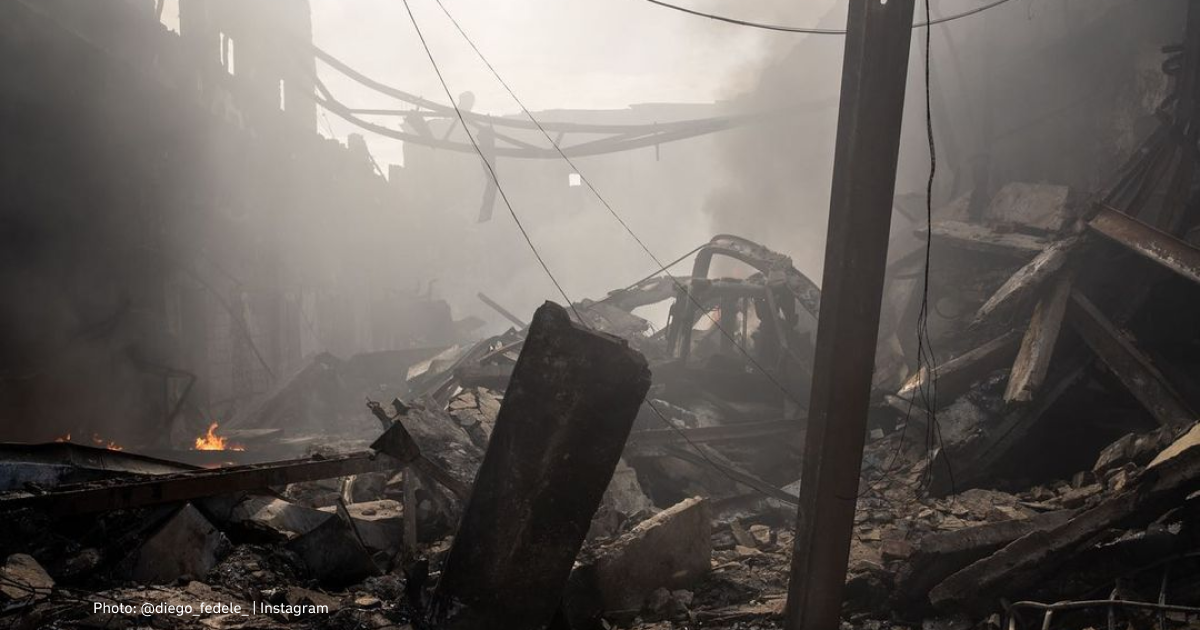
The other point that I'll make is that you have to want to destroy an entire group, or you have to destroy an entire group to commit genocide. Even taking the Holocaust as an example — Germans did not destroy the entire Jewish group. For sure, it was a massive atrocity, but they did not succeed in killing all Jews. So, from the perspective of anybody who argues that genocide only happens when you kill all members of a group — then the Holocaust wouldn't be a genocide by that definition.
However, they claimed that they would like to demolish all the members of the Jewish national group.
Sure, then, would that make it attempted genocide but not actually genocide (according to Convention — ed.) It's a mistake in logic. The reality is that the attempt to destroy a significant part of a group is still genocide.
I'll bring up another point that people sometimes make. How do you commit genocide when you're denying the existence of a people? Russians say that Ukrainians don't really exist, and they only exist in so far as they're part of the Russian nation in some perverse way.
But again, this is precisely the problem: the genocide is against the Ukrainians who believe that Ukrainians exist as an independent separate nation that has its own culture and language. It's a flawed logic on a surface level.
How do you think we should continue to communicate with the international community about the Russian genocide, to hold the Russians accountable, and to prevent further atrocities even outside of Ukraine?
From a Ukrainian perspective, I think helping people abroad understand what it actually is and looks like is incredibly powerful. In particular, crimes against children — there is no counter to that. But that comes after you explicitly explain to someone what Russia is doing to Ukrainian children.
When I did the second report, I wrote a lot of the section on transferring Ukrainian children to Russian families. There are a lot of stories about the camps that Russia sends children to and what happens to the children at camps.
Children were being punished for singing the Ukrainian national anthem or saying Slava Ukraini. They said: " We made them into good Russian children". That facilitates a visceral reaction out of people that makes people really ready to reject this and support Ukraine on a deeper level.
There are people in the US who are sceptical about sending money to Ukraine. When you explain to them stories about what's happening to Ukrainians, especially to children, they're like: "Oh my God, I didn't realise." It makes them reflect on their own criticism of Ukraine's aid.
People don't understand why we're spending so much money to support Ukraine. When you tell them what is actually happening, it helps them understand things. As far as what Ukrainians can do, it's just to continue to tell your story, but also on a deeper level and target not only to the West.
It's about understanding your struggle and understanding the struggles of others, helping build these links to other formerly colonised peoples, and finding points of solidarity. For those who, you can say: I stand with you. I understand what you're going through. I understand what you went through because this is what we experienced
.
As you build these bridges of solidarity, it will help build global solidarity between Ukrainians and people around the world. West has a long history of colonialism, a long history of genocide against different peoples. And if you only align yourself with a group that is perceived as the perpetrators of genocide, then people who were the victims of those crimes will not necessarily believe your story.
But you can align yourself simultaneously with those people and find solidarity with those people who face the same as you did. The only reason we're aligning ourselves with the West is because they're the only ones who are allowing us an opportunity not to be annihilated. Then there's a lot of power in that. So, it becomes even more powerful when Ukrainians can build these bridges.



